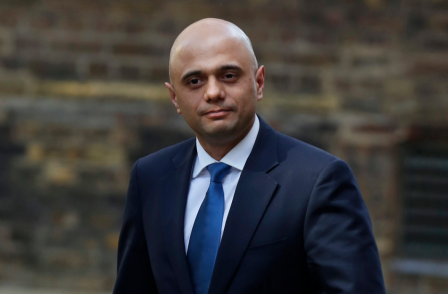
New safeguards requiring police to obtain authorisation from a judge before accessing journalists' phone records should be put in place before the general election in May, Culture Secretary Sajid Javid said.
The protection was recommended by a report from the Interception of Communications Commissioner Sir Anthony May, which Home Secretary Theresa May accepted in full yesterday.
Deputy Prime Minister Nick Clegg has written to May urging her to bring forward legislation before the end of the month.
Javid told a lunch of Westminster political journalists that he was "shocked" by the extent of official snooping on journalists revealed by Sir Anthony' s report. He said there was "no excuse" for the authorities using powers created to tackle terrorism as a tool to prevent scrutiny by reporters.
The Culture Secretary said: "Democracy needs journalists to function. That is why last month's attacks in Paris struck a chord around the world. They weren't just an attack on a magazine, they were an attack on the ideals that underpin our way of life.
"Our journalists also face insidious threats from other quarters, be they commercial, judicial or political. Yesterday, we learnt the full extent to which Ripa (the Regulation of Investigatory Powers Act) was used to monitor journalists and their contacts.
"Like many of you, I was shocked by what was revealed.
"In Paris we saw terrorists attacking the fundamental freedoms of the media, so I was appalled to discover that legislation created to hamper terrorists was now being used to undermine those very same freedoms."
Javid said he had raised concerns with ministerial colleagues and welcomed May's announcement that the law would be reformed.
"The Prime Minister has confirmed that judicial approval will now be required before Ripa is used to access journalists' data," he said. "It is a great victory for everyone who believes in press freedom.
"I want to see the law changed to make it happen during this Parliament, because there is no excuse for using anti-terror legislation to threaten legitimate reporting, no matter how awkward that reporting might be.
"Blowing a whistle on council corruption doesn't warrant undercover surveillance. A front page that embarrasses a senior politician is not a threat to national security. Journalism is not terrorism."
Javid said that the correspondents reporting on politics in the parliamentary lobby were "just as much part of our democracy as the MPs that sit in the chamber" and told his audience of political journalists: "If you are not free to go about your legitimate business, it is our democracy that suffers."
Sir Anthony's review of the use of the Ripa surveillance powers was launched in October after alarm was expressed about incidents such as Scotland Yard accessing the phone records of Sun reporter Tom Newton Dunn to find who had leaked information on the Plebgate row.
The report found that Ripa did not "provide adequate safeguards to protect journalistic sources" and concluded: "It is recommended that judicial authorisation is obtained in cases where communications data is sought to determine the source of journalistic information."
In a statement welcoming the findings, May said: "A free press is fundamental to a free society and the Government is determined that nothing is done that puts that at risk."
Email pged@pressgazette.co.uk to point out mistakes, provide story tips or send in a letter for publication on our "Letters Page" blog
